Keynote Session Topics
Session topics are listed in alphabetical order.
- Antibodies & Protein Arrays
- Bioinformatics and Computational Proteomics
- Brain & EyeOME: Connecting two images
- Cancer & Translational Proteomics
- Chemical Probes & Chemical Biology for Proteomics
- Chemical Proteomics & Profiling Drug Targets
- Cysteine Modifications & Redoxomics
- Diabetes & Cardiovascular Diseases: Energy balance in disease phenotypes
- Extracellular & Membrane Proteomics
- Food & Nutrition and Immuno-Peptidome: Focus on food allergies
- Glycoproteomics - Technical Limitations & Prospects
- Imaging Mass Spectrometry
- Immunity, Inflammation & Infectious Diseases
- Innovative MS Techniques for Global & Targeted Proteomics
- Integrative Glyco(proteo)mics for Glycosylation Disorders
- Interactomics & Protein Network
- Kidney, Urine & Plasma: Opportunities for early diagnosis and risk assessment
- Liver & Toxicoproteomics: Metabolism, drug transformation & toxicity
- Metabolomics & Metabolic Disorders
- Neurological Disorders & Brain Proteomics
- New Technological Advancements
- Pharmacoproteomics & Drug Discovery
- Plant & Microbial Proteomics
- Protein Standards & Model Organisms: Expanding our horizons
- Proteogenomics & The Missing Proteins/peptides
- Proteome Dynamics: Turnover & Degradomics
- Proteomics in the Era of Big Data
- PTM Crosstalks I - Phosphoproteomics, Kinome & OGlcNAc
- PTM Crosstalks II - Lysine & other Modificomics
- Spatial & Single Cell Proteomics
Antibodies & Protein Arrays
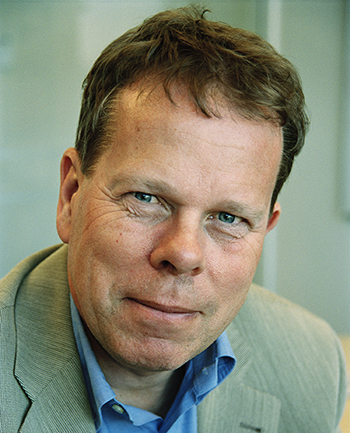 Mathias Uhlén Mathias Uhlén KTH Royal Institute of Technology, Sweden Lecture Title: Validation of Antibodies to Study the Human Proteome Dr Uhlen received his PhD in chemistry at the Royal Institute of Technology (KTH), Stockholm, Sweden in 1984. After a post-doc period at the EMBL in Heidelberg, Germany, he became professor in microbiology at KTH in 1988. His research is focused on protein science, antibody engineering and molecular medicine and has resulted in more than 550 publications with an h-index of 98 (Google Scholar). |
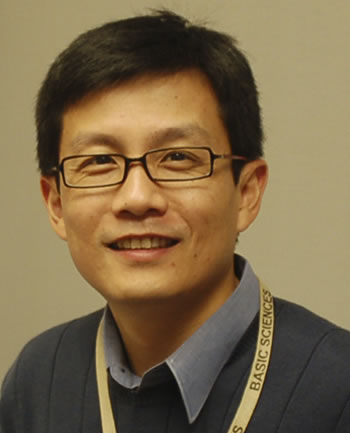 Heng Zhu Heng ZhuJohns Hopkins School of Medicine, USA Lecture Title: Application of protein microarrays in epigenetics and drug discovery Dr. Heng Zhu is a Full Professor at Department of Pharmacology and Molecular Sciences at Johns Hopkins University School of medicine. He also holds appointments in the High-Throughput Biology Center and the Oncology Department at Hopkins. Dr. Zhu received his B.S. degree at Peking University, China and obtained his Ph.D. degree in Genetics (Dr. Ralph Dean) at Clemson University, South Carolina. Dr. Zhu did his postdoctoral research in Dr. Michael Snyder's group at Yale University when he and his colleagues invented the proteome chip technology. In 2004, Dr. Zhu joined the faculty of the Johns Hopkins University School of Medicine. During the years, Dr. Zhu’s group has been focusing on the development and application of proteome microarrays to address both basic and clinical questions. His group has constructed the world-largest proteome microarray, comprised of ~20,000 individually purified human proteins in full-length. Using this powerful tool, his group has developed new approaches to construct signaling networks and pathways via identification of enzyme-substrate relationships and to profile DNA- and RNA-protein interactions. His group has also applied the human proteome microarrays to determine the underlining principle of pathogen-host interactions. In parallel, Dr. Zhu and colleagues applied the human proteome microarrays to discovery novel biomarkers in autoimmune diseases and cancer. |
Bioinformatics and Computational Proteomics
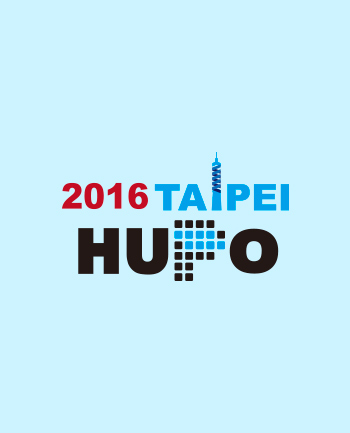 Nuno Bandeira Nuno BandeiraUniversity of California, San Diego, USA Lecture Title: Exploring the diversity in the human proteome
|
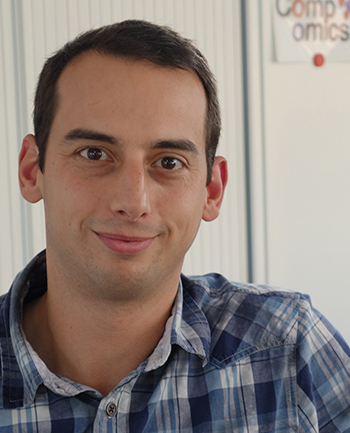 Lennart Martens Lennart MartensGhent University and VIB, Belgium Lecture Title: More power and more depth: new tools for proteomics data processing Dr. Lennart Martens is Professor of Systems Biology at Ghent University, and Group Leader of the Computational Omics and Systems Biology (CompOmics) group at VIB, both in Ghent, Belgium. |
Brain & EyeOME: Connecting two images
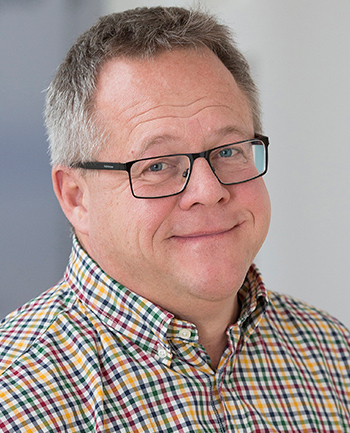 Peter Nilsson Peter NilssonSciLifeLab, KTH - Royal Institute of Technology, Stockholm, Sweden Lecture Title: More power and more depth: new tools for proteomics data processing Peter Nilsson is a Professor in Proteomics at SciLifeLab, KTH - Royal Institute of Technology, in Stockholm, Sweden. He received his PhD degree in Biotechnology from KTH in 1998. Since 2003, he is the head of the Protein Microarray group within the Human Protein Atlas and the director of the Affinity Proteomics national platform at SciLifeLab since 2013. He is also the Vice Dean of KTH School of Biotechnology. PN is a member of the steering group of HBPP since 2015 and organizer of the 25th HUPO Human Brain Proteome Project Workshop in Stockholm May 2016. |
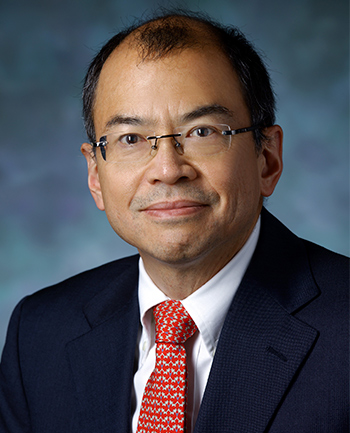 Richard D. Semba Richard D. SembaJohns Hopkins University, USA Lecture Title: Exploring the diversity in the human proteome Richard D. Semba, M.D., M.P.H., is the W. Richard Green Professor of Ophthalmology at the Wilmer Eye Institute, Johns Hopkins University School of Medicine, Baltimore, Maryland, USA. Dr. Semba received his B.S. from Yale University, M.D. from Stanford University, and M.P.H. from Johns Hopkins University. He did residency training in ophthalmology at the Wilmer Eye Institute. Dr. Semba has authored or co-authored over 340 scientific articles, 32 reviews, and 35 book chapters. He is the author of Handbook of Nutrition and Ophthalmology (2007), The Vitamin A Story: Lifting the Shadow of Death (2012), and A Perfect Vision: Catalogue of the William Holland Wilmer Rare Book Collection (2013). He is co-editor of the widely-used textbook Nutrition and Health in Developing Countries (2008). Dr. Semba has diverse research interests. He uses proteomics and metabolomics to gain insight into age-related macular degeneration, aging-related phenotypes, and maternal and child health in developing countries. |
Cancer & Translational Proteomics
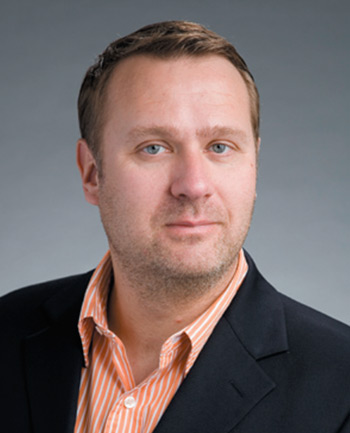 Christoph H. Borchers Christoph H. BorchersUniversity of Victoria- Genome BC Proteomics Centre, Canada Lecture Title: iMALDI for accurate quantitation of the expression and phosphorylation level of Akt in tumour biopsies Dr. Borchers received his B.S., M.S. and Ph.D. from the University of Konstanz, Germany. After his post-doctoral training and employment as a staff scientist at NIEHS/NIH/RTP, in North Carolina, he became the director of the UNC-Duke Proteomics Facility and held a faculty position at the UNC Medical School in Chapel Hill, NC (2001-2006). Since then, Dr. Borchers has been employed at the University of Victoria (UVic), Canada and holds the current positions of Professor in the Department of Biochemistry and Microbiology and the Don and Eleanor Rix BC Leadership Chair in Biomedical and Environmental Proteomics. He is also the Director of the UVic – Genome BC Proteomics Centre, which is a member of the Genome Canada funded Genomics Innovation Network. Dr. Borchers is also appointed as Professor at McGill University in the Department of Oncology, Montreal, QC and received there the Segal Chair in Molecular Oncology at the Jewish General Hospital of the McGill University. His research is centered around the improvement, development and application of proteomics technologies with a major focus on techniques for quantitative targeted proteomics for clinical diagnostics. Multiplexed LC-MRM-MS approaches and the immuno-MALDI (iMALDI) technique are of particular interest. Another focus of his research is on technology development and application of the combined approach of protein chemistry and mass spectrometry for structural proteomics. Dr. Borchers has published over 200 peer-reviewed papers in scientific journals and is the founder and CSO of two companies, Creative Molecules. Inc. and MRM Proteomics Inc. He is also involved in promoting proteomic research and education through his function as HUPO International Council Member, Past Scientific Director of the BC Proteomics Network and Vice-President, External of the Canadian National Proteomics Network. |
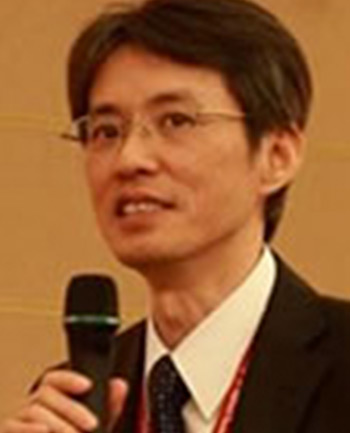 Jau-Song Yu Jau-Song YuChang Gung University, Taiwan Lecture Title: Verification of oral cancer biomarkers and their translation to clinical settings |
Chemical Probes & Chemical Biology for Proteomics
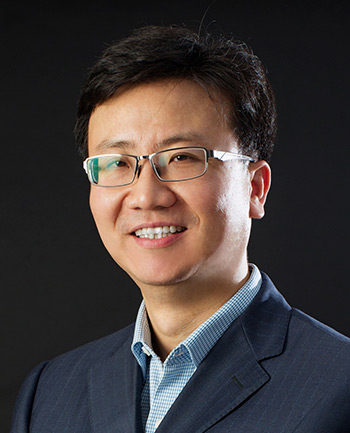 Peng Chen Peng ChenPeking University, China Lecture Title: Genetically encoded protein photocrosslinker for comparative proteomics Professor Peng Chen obtained his BS degree in Chemistry from Peking University in 2002 and Ph.D with Prof. Chuan He in Chemistry at The University of Chicago in 2007. After a postdoctoral training with Prof. Peter Schultz at The Scripps Research Institute between 2007 and 2009, he started his independent career as an Investigator in Chemical Biology at Peking University in July 2009 and has been promoted to Full Professor with tenure on Aug 2014. His Lab is interested in developing and applying novel chemistry tools to investigate protein-based interactions and activities in living cells. He has published 50 peer-reviewed papers on top scientific journals and magazines including Nature Chemistry, Nature Chemical Biology, and JACS and ACIE. He received NSFC Distinguished Young Scholar Award in 2012, China Young Scientists Award in 2013, RSC Chemical Society Review Emerging Investigator lectureship in 2014 and The Chemical Society of Japan Distinguished Lectureship Award in 2015. He is now the Chairman of Department of Chemical Biology at Peking University. |
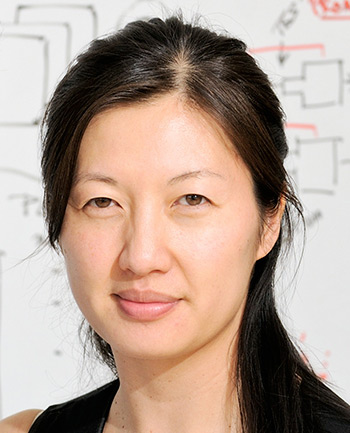 Alice Y. Ting Alice Y. TingStanford University, USA Lecture Title: Spatially-resolved proteomic mapping in living cells via enzyme-mediated proximity labeling Alice Ting is a Professor of Genetics, Biology, and Chemistry at Stanford University. She received her undergraduate degree at Harvard University, working with E. J. Corey, and her Ph.D. from U. C. Berkeley, working with Peter Schultz. After her postdoctoral training with Roger Tsien, Alice started her laboratory at MIT in 2002, and in 2016, relocated as a full professor to Stanford University. Alice develops technologies for measuring and manipulating biomolecules and biochemical events in living cells. Her work has been recognized by awards from the McKnight Foundation, Dreyfus Foundation, American Chemical Society, Office of Naval Research, and Sloan Foundation. She has received the NIH Pioneer Award, the Arthur C. Cope Scholar Award, the Technology Review TR35 Award, and the Eli Lilly Award in Biological Chemistry. |
Chemical Proteomics & Profiling Drug Targets
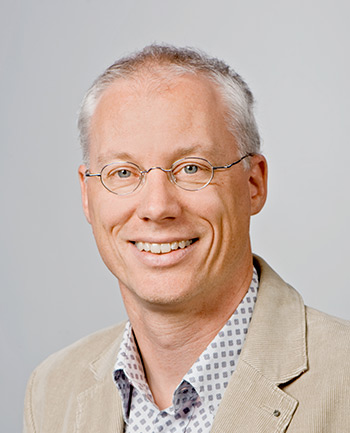 Bernhard Kuster Bernhard KusterTechnical University of Munich, Germany Lecture Title: Chemical Proteomics Reveals the Target Landscape of >200 Clinical Kinase Inhibitor Drugs Bernhard Kuster is a chemist by training and obtained is PhD in Biochemistry from the University of Oxford. He went on to do a PostDoc funded by an EMBO long-term fellowship at the EMBL in Heidelberg and the University of Southern Denmark in Odense. After seven years at the biotech firm Cellzome in Heidelberg as Vice President for Analytical Sciences and Informatics, he became Full Professor of Proteomics at the Technical University of Munich in 2007 where he is also the Chair of the Department for Biosciences and Co-Director of the Bavarian Biomolecular Mass Spectrometry Center. Bernhard’s research focuses on mass spectrometry based proteomics, big data informatics and their application to chemical and systems biology. Professor Kuster is recognized as a pioneer in the field of chemical proteomics and his group has generated an extensive draft of the human proteome in 2014. These contributions have been recognized by the Heinz Maier-Leibnitz award of the TUM (2014) and the HUPO Discovery in Proteomic Sciences Award (2015). Bernhard is also an associate editor of the journal Molecular and Cellular Proteomics and a co-founder of the biotech firm OmicScouts. |
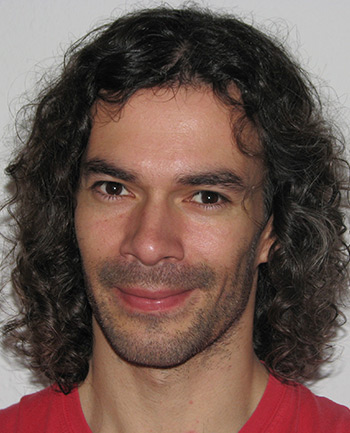 Mikhail Savitski Mikhail SavitskiEMBL, Heidelberg, Germany Lecture Title: Thermal Proteome Profiling for Drug Discovery Mikhail Savitski studied physics and mathematics at Uppsala University graduating in 2003. He did his PhD in the lab of professor Roman Zubarev also at Uppsala University. After that he joined the company Cellzome in Heidelberg first as a scientist and then as group leader in the analytical sciences department. Since 2016 he is team leader and head of proteomics core facility at EMBL Heidelberg heading a research group and the proteomics core facility. |
Cysteine Modifications & Redoxomics
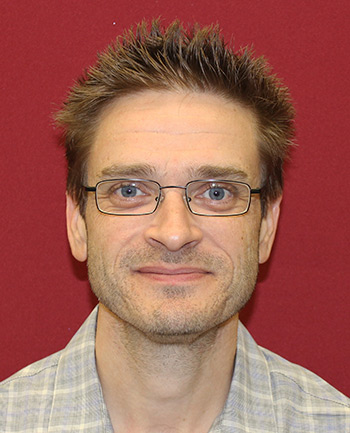 Stuart J. Cordwell Stuart J. CordwellThe University of Sydney, Australia Lecture Title: Proteomic-scale approaches for identifying reversible and irreversible cysteine redox post-translational modifications in myocardial ischemia / reperfusion Stuart Cordwell is a graduate of the University of Sydney and was Senior Research Fellow, and Director, R&D at the Australian Proteome Analysis Facility from 1999-2004. He is now co-appointed in the Schools of Life and Environmental Sciences and Medical Sciences at USyd and is a member of the Charles Perkins Centre. He is Academic Director of the USyd Core Facility in Mass Spectrometry. His research focuses on protein PTMs in bacterial and cardiovascular disease. He received the Selby Research Award for work on bacterial membrane proteins and a VELUX Professorship for his work on PTMs. He is on the Editorial Boards of Proteomics and Proteomics (Clinical Applications). He has published >110 papers with >4500 career citations. He has been invited to speak at many international conferences, including 6 HUPO World Congresses. He was recently elected President of the Australasian Proteomics Society, and served on the Executive Committee (2007-) and Organizing Committee (2004-) of the Lorne Proteomics Symposium. |
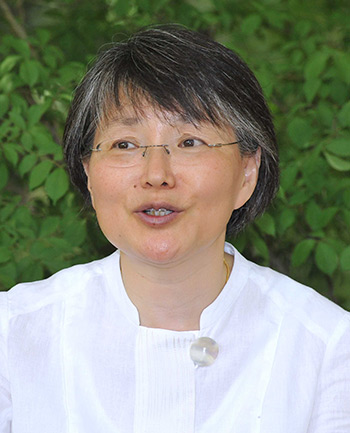 Kong-Joo Lee Kong-Joo LeeEwha Womans University, Korea Lecture Title: ROSics: Principle of ROS in oxidative modifications and structural regulations Kong-Joo Lee completed her PhD from Stanford University and postdoctoral studies from Stanford University School of Medicine. She is a professor in College of Pharmacy, Ewha Womans University, Korea. She has published more than 100 papers on proteomic algorithm for identification of novel modifications (MODi) and disulfide linkage (DBonds), redoxomics, ROS signaling and regulation, cancer metastasis, post-translational modifications with MS, oxidative stress target molecules, structural changes by ROS and hydrogen-deuterium exchange mass spectrometry (HDX-MS) for analysis of structural change by protein modifications and chemical interactions in reputed journals. She has been serving as an editorial board member of Molecular Cellular Proteomics and is working as President of International Network Women Engineers and Scientists (INWES). |
Diabetes & Cardiovascular Diseases: Energy balance in disease phenotypes
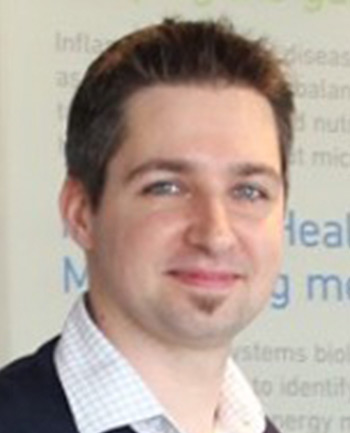 Loïc Dayon Loïc DayonNestlé Institute of Health Sciences SA, Switzerland Lecture Title: Proteomic and metabolic health phenotypes in dietary clinical interventions Loïc Dayon received his PhD in Bioanalytical Chemistry from the Ecole Polytechnique Fédérale de Lausanne (Switzerland) in 2006. He completed his education in the Biomedical Proteomics Group at the University of Geneva before being employed as a Senior Research Scientist at Proteome Sciences plc (London, UK). His activities within these groups covered the discovery of innovative brain disease markers, the development of mass spectrometry-based quantitative approaches for proteomics, and the separation of peptides with liquid chromatography and isoelectric focusing. Loïc Dayon joined the Nestlé Institute of Health Sciences in 2011 as a Proteomics/Metabolomics Scientist. The focus of his team is the development and deployment of proteomic methods in pre-clinical and clinical research. Large-scale clinical proteomic studies are performed in the fields of brain and metabolic health to allow innovation in personalized nutrition and diagnostics. |
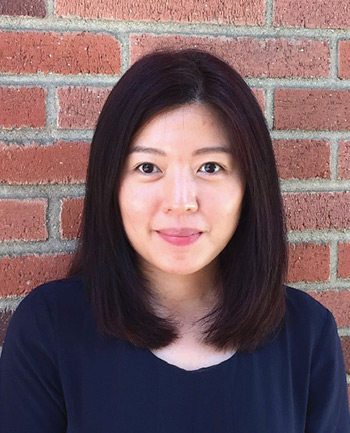 Maggie Lam Maggie LamUniversity of California, Los Angeles, USA Lecture Title: Proteome homeostasis and remodeling in the stressed myocardium Dr. Maggie Lam’s research focuses on deciphering the organizational principles of the cardiac proteome, by developing methods to analyze and model the spatiotemporal dynamics of protein networks. Her work routinely leverages a combination of analytical and computational approaches to understand cardiac and cellular physiology, with highlights including a series of multi-dimensional liquid chromatography platforms for deep proteome and glycome characterization, experimental workflows to quantify protein post-translational modifications in cardiac mitochondria, and an algorithm to annotate protein lists based on publications in the cardiovascular literature. She is currently a project scientist at the University of California at Los Angeles, where she is working to model the gradual reorganization of the cardiac proteome during cardiac hypertrophy and oxidative stress using the steady-state abundance and half-life of cardiac protein pathways. |
Extracellular & Membrane Proteomics
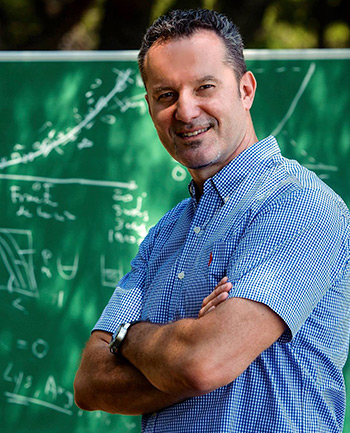 Igor Stagljar Igor StagljarUniversity of Toronto, Canada Lecture Title: Targeting Epidermal Growth Factor Receptor (EGFR) in Lung Cancer: Towards Interactome-informed Medicine Igor Stagljar is a Professor in the Departments of Biochemistry and Molecular Genetics at the Donnelly Centre in the University of Toronto, Canada. He received his Ph.D. in Molecular Biology from ETH Zurich in Switzerland. His postdoctoral fellowship was at the University of Zurich, where he studied RNA transcription and DNA repair. In addition, Igor was a visiting scientist at the University of Washington in Seattle with Stan Fields, the inventor of the yeast two-hybrid technology. Igor was Assistant Professor at the University of Zurich from 2002-2005, Associate Professor at the University of Toronto since 2005, and Professor since 2010. Amongst his most significant scientific achievements to date are the elucidation of functions of various membrane proteins involved in human health and disease. To that end, his lab is using high-throughput interactive proteomics, genetic, and biochemical tools to understand how cell signaling and membrane transport pathways control cell behavior in normal and disease cells. Igor is the recipient of several national and international science awards. He is a member of the Editorial Board of BioTechniques, Molecular Genetics and Genomics, BMC Biotechnology, Journal of Molecular Biology, Biochemical and Biophysical Research Communications, and Molecular Systems Biology. Lastly, he is a co-founder of Dualsystems Biotech Inc. in Switzerland, and is currently actively working on co-founding a new biotech start-up company named “Protein Network Sciences”. |
 Bernd Wollscheid Bernd WollscheidETH Zurich, Switzerland Lecture Title: Decoding Ligand Receptor Interactions Bernd Wollscheid is a Professor for Chemical and Systems Biology at the Swiss Federal Institute of Technology in Zürich, Switzerland and Head of the D-HEST BioMedical Proteomics Platform (BMPP). After studying chemistry in Freiburg and Boston he obtained his PhD in Molecular Immunology from the Max-Planck Institute for Immunobiology. His postdoctoral research took him to the Institute of Systems Biology in Seattle where he pioneered and applied chemoproteomic technologies towards the identification and quantification of proteins and their interaction partners. Now at the Institute of Molecular Systems Biology and the Department of Health Sciences and Technology at ETH Zürich the Wollscheid group is focusing on biomedical research bridging the gap in understanding the genotype to phenotype transition via detailed analysis of the proteotype. |
Food & Nutrition and Immuno-Peptidome: Focus on food allergies
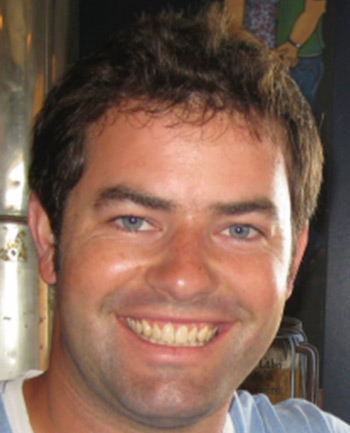 Etienne Caron Etienne CaronETH Zürich, Switzerland Lecture Title: Deciphering the major histocompatibility complex immunopeptidome Etienne was born in Canada. He did a Ph.D. in Systems Immunology at the University of Montreal where he worked on the analysis of the cellular immunopeptidome. In 2013, he received a Marie Curie Intra-European Fellowship to carry out research in the group of Ruedi Aebersold in Switzerland. In 2015, he initiated the Human Immuno-Peptidome Project (HIPP) as part of the Human Proteome Project. His research focuses on how cutting edge technologies in mass spectrometry-based proteomics can be applied in the field of immunology – T cell biology, MHC peptide antigen presentation, cancer immunotherapy and systems vaccinology in particular. More specifically, he is currently deploying new DIA/SWATH mass spectrometry-based techniques to decipher 1) the composition of the MHC immunopeptidome in health, cancer and infectious diseases, and 2) the dynamics of signal transduction networks in primary T cells. He is also actively involved in the community through TBVAC2020, HIPP, and more recently the SysteMHC Atlas project. |
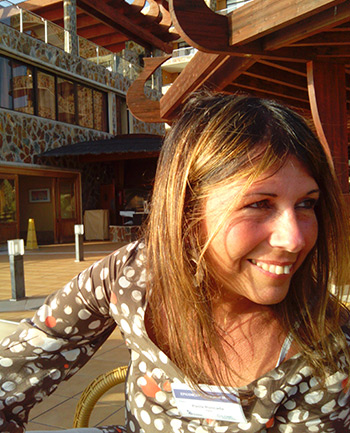 Paola Roncada Paola RoncadaIstituto Sperimentale Italiano Lazzaro Spallanzani, Italy Lecture Title: Food and Nutrition Proteomics: focus on food allergies Paola Roncada is graduate in Chemistry and Pharmaceutical Technologies in 1995, University of Milano and PhD in Biochemistry, at Faculty of Medicine of University of Sassari in 2001. From 2002 is responsible of Proteomics research of Istituto Spallanzani. From 2010-2015 was in the Board of Italian Proteomics Association, and in 2015 was elected in the executive Committee of Human Proteome Organization. Her activities and expertise in the field of proteomics applied to microbes, milk, food and public health is recognize at national and international levels, with important national and international collaboration, She was MC for Italy of European Project COST Food and Agriculture FA 1002, Farm Animal Proteomics, and now she is MC for Italy of another European Cost Action, Food and Agriculture FA 1402, Imparas, Improved Risk assessment for new food proteins. Furthermore, she is work unit for proteomics of an EU-FP7 project, Prolific, and WG leader of the ERA -NET ARimNET (2016-2019). |
Glycoproteomics - Technical Limitations & Prospects
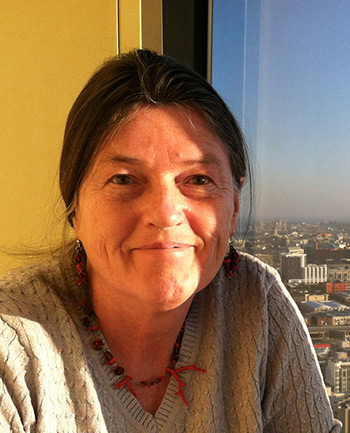 Katalin F. Medzihradszky Katalin F. MedzihradszkyUniversity of California San Francisco, USA / Biological Research Centre, Szeged, Hungary Lecture Title: Extracellular Glycosylation: How to See the Forest Despite All the Trees
|
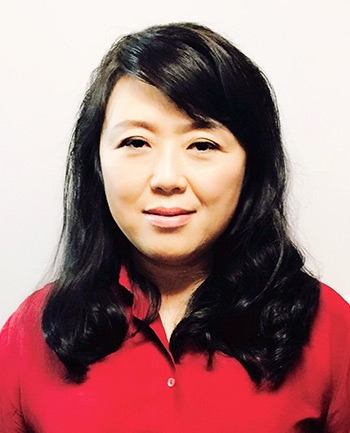 Hui Zhang Hui Zhang Johns Hopkins University, USA Lecture Title: Comprehensive Analysis of N-Linked Protein Glycosylation Using NGAG and Mass Spectrometry Hui Zhang graduated from Beijing University with a BS and a MS degrees and from University of Pennsylvania with a Ph.D. degree. After working at New England Biolabs, Cell Signaling Technology, and the Institute for Systems Biology, she joined Johns Hopkins University in 2006 and established Mass Spectrometry Facility. Her research interests are centered on the structural and functional analyses of proteins and multiple protein modifications by glycosylation, phosphorylation, and acetylation. Recently, her laboratory has developed several novel glycoproteomic and glycomic technologies to study protein glycosylation and applied the technologies to study cell surface glycoproteins and glycoproteins secreted to body fluids. These technologies enable the identification and quantification of glycoproteins, glycosites, glycans associated with each glycosite and their occupancies. Researchers in the group participate in several national programs in characterization of glycoproteins including the Early Detection Research Network (EDRN), Clinical Proteomic Tumor Analysis Consortium (CPTAC), and Programs of Excellence in Glycosciences (PEG) |
Imaging Mass Spectrometry
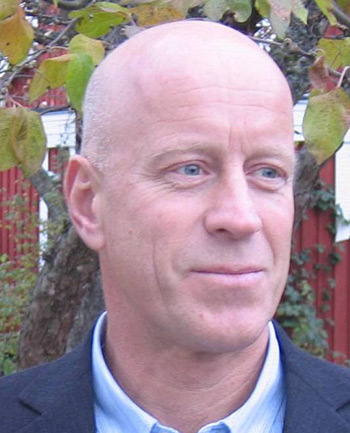 Per E. Andrén Per E. AndrénUppsala University, Sweden Lecture Title: Molecular Imaging of the Brain by Mass Spectrometry Dr. Per Andrén is Professor in Mass Spectrometry Imaging at the Dept. of Pharmaceutical Biosciences, Uppsala University, Sweden. He received his MSc in Pharmacy in 1984 and his PhD in 1989 in Medical Sciences (Psychiatry) also at Uppsala University. He did a postdoctoral fellowship and associate professorship at University of Texas Medical School, Houston, USA with Professor Richard M. Caprioli (1989-1995). He has also worked at GE Healthcare (R&D) as a Staff Scientist (2000-2009) and as a Guest Professor at Dept. of Biotechnology, Analytical Biotechnology, Delft University, the Netherlands (2008-2009). Dr. Andrén is interested in the use of mass spectrometry for the analysis of compounds in biological systems and focus on the development and application of integrated approaches to the molecular profiling of neurodegenerative diseases, with particular emphasis on Parkinson’s disease. His work involves Mass Spectrometry Imaging, a technique that allows analysis and visualization of small proteins, peptides, lipids, as well as drugs and its metabolites, in their native biochemical states within the same tissue section with high molecular specificity. Another approach is Peptidomics, the comprehensive analysis of endogenous neuropeptides using nano-LC electrospray mass spectrometry. Dr. Andrén recently received a Research Infrastructure Fellow grant (1.8 M USD; Mass Spectrometry Imaging) from the Swedish Foundation for Strategic Research. |
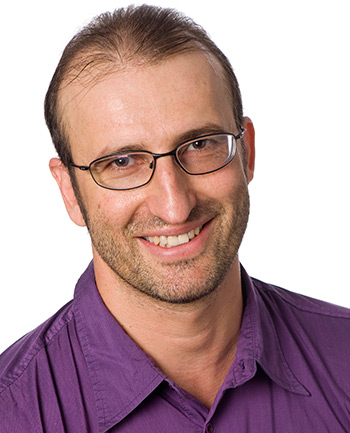 Peter Hoffmann Peter HoffmannUniversity of Adelaide, Australia Lecture Title: Peptide and Glycan Mass Spectrometry Imaging as Diagnostic Tool in Cancer Research Prof Hoffmann received his PhD in Analytical Chemistry at University of the Saarland, Germany in 1999. He spent four years in Melbourne working with Prof Richard Simpson and Prof Bruce Kemp where he specialised in the use of free-flow electrophoresis in proteomics and the detection of protein phosphorylation by mass spectrometry. He moved back to Germany in 2003 and played an integral role in establishing a proteomics facility at the University Leipzig, Germany. In 2005, he was recruited back to Australia to establish a Proteomics Centre at the University of Adelaide. He holds now a Chair in Proteomics and is Director of the Adelaide Proteomics Centre at the University of Adelaide. His research is focused on biomarker discovery in cancer, detection of protein phosphorylation and Tissue Imaging Mass Spectrometry. The Adelaide Proteomics Centre houses the national facility for Tissue Imaging Mass Spectrometry for Australia. Prof Hoffmann is Deputy Director of Institute of Photonics and Advanced Sensing one of the five research institutes at the University of Adelaide. Prof Hoffmann is also an elected member of the HUPO Council. |
Immunity, Inflammation & Infectious Diseases
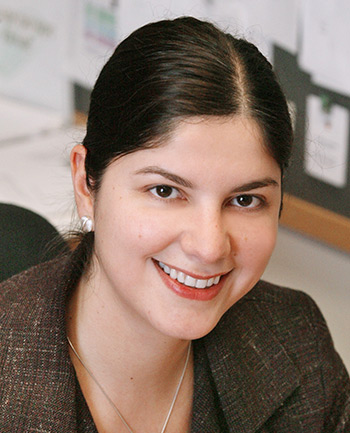 Ileana M. Cristea Ileana M. CristeaPrinceton University, USA Lecture Title: Proteomics in Viral Infectious Diseases: Global and Targeted Functional Insights into the Virus-Host Interface Ileana Cristea is a Professor in the Department of Molecular Biology at Princeton University. Her laboratory focuses on characterizing mechanisms of cellular defense against viruses, as well as mechanisms used by viruses to manipulate these critical cellular processes. Towards these goals, she has promoted the integration of virology with proteomics and bioinformatics. She has developed methods for studying virus-host protein interactions in space and time during the progression of an infection, which have allowed her group to bridge developments in mass spectrometry to important findings in virology. For example, her laboratory has contributed to the emergence of the research field of nuclear DNA sensing in immune response, and has discovered sirtuins as broad-spectrum antiviral factors. Dr. Cristea chairs the Infectious Disease initiative of the Human Proteome World Organization, is on the Executive Board of US HUPO, and has acted on the Education Committee of the American Society for Mass Spectrometry. She is a head instructor of the Proteomics Course at Cold Spring Harbor Laboratory, Senior Editor for mSystems and Proteomics, and an Editorial Board member of Molecular & Cellular Proteomics and Journal of Neuroimmune Pharmacology. She is the recipient of the Bordoli Prize from the British Mass Spectrometry Society (2001), NIDA Avant-Garde Director Pioneer Award for HIV/AIDS Research (2008), Human Frontiers Science Program Young Investigator Award (2009), Early Career Award in Mass Spectrometry from the American Chemical Society (2011), the American Society for Mass Spectrometry Research Award (2012), the Molecular Cellular Proteomics Lectureship (2013), and the Mallinckrodt Scholar Award (2015). |
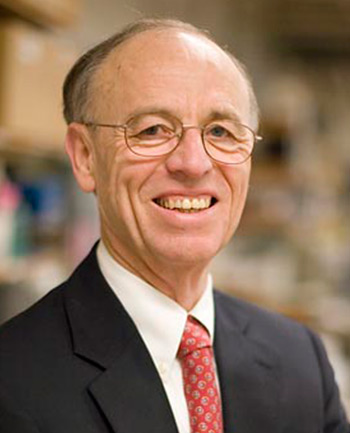 Donald F. Hunt Donald F. HuntUniversity of Virginia, USA Lecture Title: Immunotherapy of Cancer; An Overview and Recent Results Professor Donald F. Hunt joined the faculty at the University of Virginia as an assistant professor in September, 1968 and currently holds the rank of University Professor with appointments in both Chemistry and Pathology. He is the recipient of numerous awards including: Virginia's Outstanding Scientist, the Pehr Edman Award, the Distinguished Contribution Award from the American Society for Mass Spectrometry, the Christian B. Anfinsen Award from the Protein Society, the Chemical Instrumentation Award and the Frank F. Field and Joe L. Franklin Award from the American Chemical Society, the Thomson Medal from the International Mass Spectrometry Society, Distinguished Accomplishment Awards from the Human Proteome Organization (HUPO) and ABRF, the Distinguished Scientist Award at the University of Virginia, and the School of Medicine Dean’s Award for Excellence in Team Science. He is a co-inventor on more than 30 patents and patent applications and has more than 390 scholarly publications to his credit. His Google Scholar h-index of 106, (106 papers with 106 or more citations, total citations = 41,471, i10-index = 346) ranks him among the top 130 living chemists in the world. An RG score of 49.67 on Research gate places him in the top 97.5% of all members ot this scientific community.) Professor Hunt is a consultant to ThermoFisher Scientific Corp. |
Innovative MS Techniques for Global & Targeted Proteomics
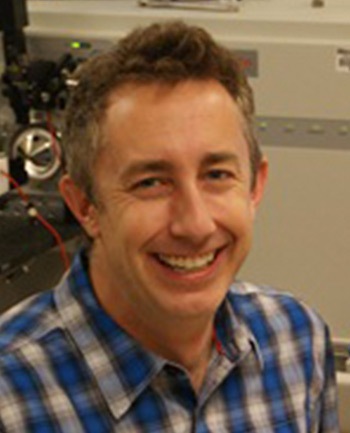 Michael MacCoss Michael MacCossUniversity of Washington, USA Lecture Title: Comprehensive DIA with high precursor selectivity: How can we have our cake and eat it too?
|
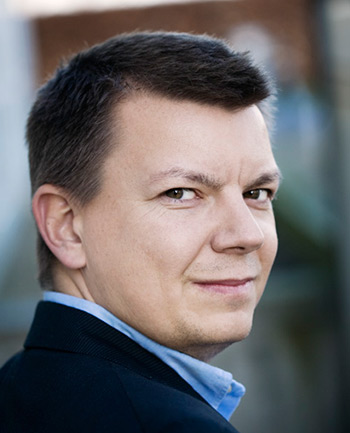 Jesper Velgaard Olsen Jesper Velgaard OlsenUniversity of Copenhagen, Denmark ecture Title: Comprehensive Analysis of Human Proteomes with similar depth as RNA-Seq Jesper V. Olsen is a Danish scientist trained as an analytical chemist in the Group of Professor Roman Zubarev during his under-graduate studies at the University of Southern Denmark. He received his PhD in Molecular Biology from Matthias Mann’s laboratory at University of Southern Denmark in 2006. After post-doctoral work at the Max Planck Institute for Biochemistry in Munich, he joined the newly established Novo Nordisk Foundation Center for Protein Research at University of Copenhagen in 2009 as independent group leader and vice director since 2012. He has developed technologies for detection of proteins and their post-translational modifications (PTMs) with unprecedented throughput and quantitative precision and applied them to address unsolved questions in cell signaling. He has made seminal work in quantitative phosphoproteomics and succeeded in obtaining global maps of dynamic phosphorylation events in mammalian cells in a time-resolved manner as function of growth factor stimulus (EGF, FGF and NGF) or drug treatment (cell-cycle and DNA damage response). Jesper is since 2014 full professor at the University of Copenhagen, where his research interests continues to be in mass spectrometry-based proteomics with a specific focus on developing innovative technologies for deep proteome and PTM analyses, and apply these methods to study disease signaling networks in cell and tissue-based models. Jesper has received a number of research awards including the HUPO Young Investigator Award in Proteomic Sciences at the HUPO World Congress in 2008. |
Integrative Glyco(proteo)mics for Glycosylation Disorders
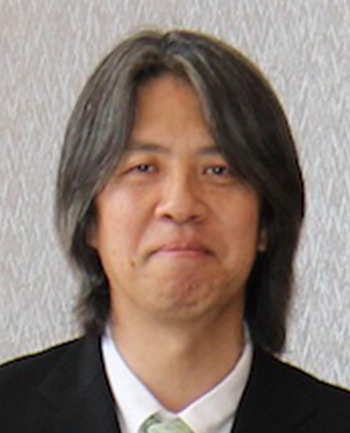 Hiroyuki Kaji Hiroyuki KajiNational Institute of Advanced Industrial Science & Technology, Japan Lecture Title: Accurate mass- and glycan composition-based assignment of glycosylation site-specific glycomes of complex glycoprotein mixture Dr. Hiroyuki Kaji is now a Group Leader of Glycoscience and Glycotechnology Research Group in Biotechnology Research Institute for Drug Discovery, National Institute of Advanced Industrial Science & Technology (AIST). He graduated from Aoyama Gakuin University and received Dr. of Science degree in 1989. He started proteomics study in 1997 at Tokyo Metropolitan University under Professor Toshiaki Isobe. Dr. Kaji moved to AIST in 2007 and has been worked with Dr. Hisashi Narimatsu in a field of glycoproteomics. His current interest is a development of methodology and its application on glycoproteomics. He serves as a Council member of JHUPO (2015-2016). |
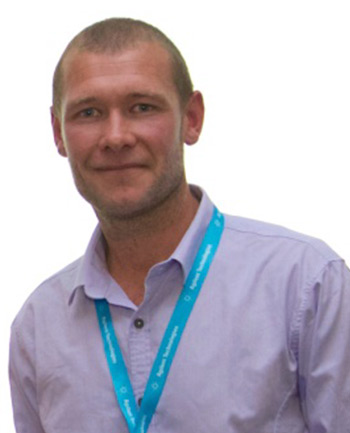 Morten Thaysen-Andersen Morten Thaysen-AndersenMacquarie University, Australia Lecture Title: Advances in Glycoproteomics Facilitate the Discovery of a New Class of Functionally Important Cancer and Inflammation-Centric Human Glycoproteins Dr. Morten Thaysen-Andersen (MTA) is a Fellow of the Cancer Institute NSW at Macquarie University, Sydney, Australia. He obtained his PhD in Carbohydrate and Protein Chemistry in 2009 from University of Southern Denmark under the guidance of Prof. Peter Højrup, and completed two postdoctoral fellowships in Glycobiology at Macquarie University, Sydney, Australia under Prof. Nicki Packer awarded to him by the Danish and Australian Research Agencies. MTA now leads a research group at Macquarie University, Sydney, Australia that conducts research in Structural and Analytical Glycobiology with a focus on understanding how complex carbohydrates (glycans) affect the function of key proteins in complex biological systems including inflammation (innate immunity), cancer, and pathogenic-host interactions. His group develops and utilises state-of-the-art mass spectrometry-based technologies for the large-scale and accurate molecular mapping of carbohydrate-protein structures (glycomics and glycoproteomics) and uses complementary molecular and cellular assays to investigate the structure/function relationships of carbohydrate-conjugated proteins in the context of a range of human diseases. |
Interactomics & Protein Network
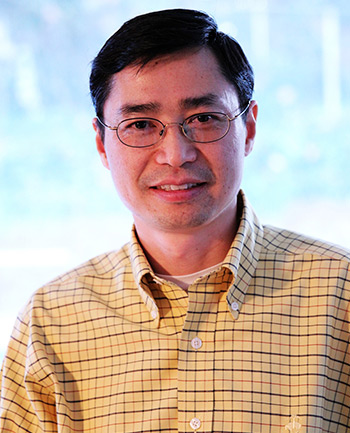 Junmin Peng Junmin PengSt. Jude Children’s Research Hospital, USA Lecture Title: Multilayer Proteomics Approaches to Understanding Common Human Diseases Dr. Junmin Peng is a Member/Professor at St. Jude Children’s Research Hospital and the Director of St. Jude Proteomics Facility. He attended Wuhan University and received a bachelor degree in biochemistry in 1991 and three years of graduate training in genetics, before he moved to the University of Iowa, where he cloned the transcription elongation factor P-TEFb (CDK9/Cyclin T) under the guidance of Dr. David Price and obtained his Ph.D. in biochemistry. Then he journeyed to Harvard Medical School for postdoctoral training in Neuroscience mentored by Dr. Li-Huei Tsai, as well as in Mass Spectrometry/Proteomics in the laboratory of Dr. Steven Gygi. He joined Emory University as a faculty member in 2002 and has worked in St. Jude Children’s Research Hospital since 2011. Dr. Peng has been interested in developing high-throughput mass spectrometry-based proteomics and metabolomics technologies, systems biology approaches, and the application to biomedical challenges (e.g. ubiquitin biology, Alzheimer’s disease and cancer). Beyond big data analysis, his lab also performs a series of functional experiments to validate the derived hypotheses. He contributes to the development of the target-decoy strategy for protein identification, the mapping of ubiquitinated proteome and synaptic proteome, as well as the discovery of unconventional polyubiquitin chains and RNA splicing dysfunction in Alzheimer’s disease. Dr. Peng has published 140+ scientific papers (total citations of 15,300+, http://scholar.google.com/citations?user=vFzS-awAAAAJ&hl=en) and has been invited to present his work in 60+ conferences, academic institutes and companies. In addition, he has trained 35+ graduate students, postdocs and staff scientists. |
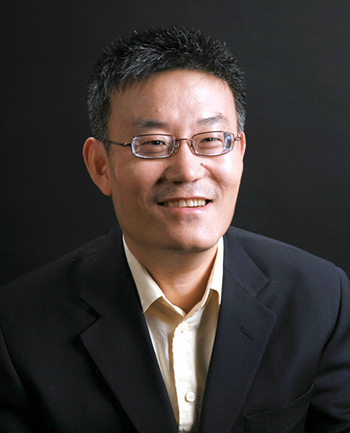 Jun Qin Jun QinNational Center for Protein Sciences, Beijing, China Lecture Title: Membrane protein complexes Dr. Jun Qin is among the few people in the world, who can integrate MS instrument design, proteomic method development, bioinformatics, biology and clinical applications into one research program. He made multiple contributions to the field of DNA damage response and nuclear hormone action by isolation and identification of endogenous protein complexes, identification of in vivo post-translational modifications and elucidation of their functional significance. As an important part of our research, he is continuously developing novel MS-based proteomic methods to analyze dynamic changes of complex biological processes in a quantitative manner. He has a long standing interest on a concept of "network analysis proteomics." Proteins tend to assemble into multi-subunit protein complexes as the minimal biologically functional units. The execution of biological processes in the cell can be viewed as a network of ordered interactions between different protein complexes, benefits the understanding of the basic mechanisms of cellular homeostasis and pathogenesis. Specifically, he analyzed the endogenous protein complexome by immunoprecipitation (IP) with primary antibody and mass spectrometry and constructed a complete human protein interactome. He is interested in understanding several intriguing biological processes, with a special emphasis on the development and application of cutting-edge mass spectrometry-based proteomics toolkits to untangle challenging biological problems. |
Kidney, Urine & Plasma: Opportunities for early diagnosis and risk assessment
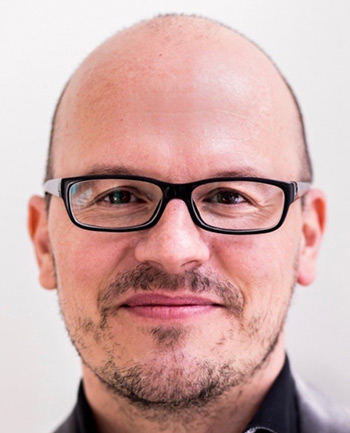 Jochen M Schwenk Jochen M SchwenkScience for Life Laboratory (KTH), Sweden Lecture Title: Affinity Proteomics with Plasma Biobanks - From Discovery to Validation Jochen M. Schwenk is Associate Professor for Translational Proteomics at KTH - Royal Institute of Technology in Stockholm, Sweden. He is Director of the Biobank Profiling facility at the Science for Life Laboratory and a Principal Investigator within the Human Protein Atlas and the KTH Center for Applied Proteomics. His research focuses on advancing and applying affinity proteomics methods for multiplexed plasma analysis of large sample sets from population and disease biobanks. His interests are finding protein-disease associations, validating antibodies and confirming indicative target proteins in clinical samples. With the aim to translate discoveries into applications, his team is working on the integration of novel affinity-based methods, mass spectrometry, study experimental designs, data processing and statistical analyses. His lab is currently involved in a variety of plasma biomarker projects, including studies of health or diseases such as cancer, diabetes and cardiovascular disorders. Jochen received his PhD in Biochemistry from the University of Tübingen, Germany for his work at the Natural and Medical Sciences Institute (NMI) on protein-based microarrays. He then joined the Human Protein Atlas for his postdoctoral work, where he developed multiplexed immunoassays for protein and antibody profiling of body fluids. |
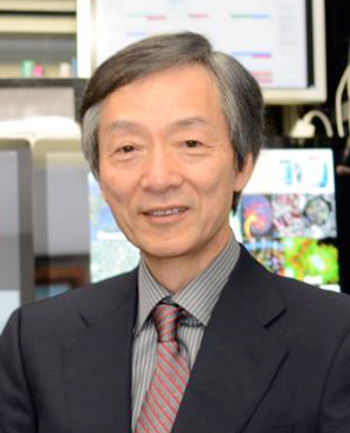 Tadashi Yamamoto Tadashi YamamotoBiofluid Biomarker Center, Niigata University, Japan Lecture Title: Social implementation vision of All-in-One Urine Test for Health Check I graduated from Niigata University School of Medicine in 1974 and took an internship course for one year. Then, I started a research on kidney disease in the Institute of Nephrology, Niigata University. I have studied pathology, cell biology, molecular biology and proteomics. |
Liver & Toxicoproteomics: Metabolism, drug transformation & toxicity
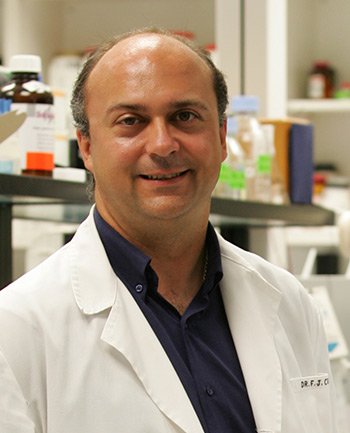 Fernando J. Corrales Fernando J. CorralesUniversity of Navarra, Spain Lecture Title: Unraveling mechanisms of liver disease progression by shotgun and targeted proteomic approaches. Fernando J Corrales received the BSc degree in Biological Sciences (1986) and the phD degree in Biochemistry and Molecular Biology (1992) from the University Autónoma of Madrid. After a Postdoctoral period at the University of Cambridge (UK), he started at the University of Navarra where he is currently Professor of Biochemistry and Molecular Biology, Senior Scientist and Director of the Proteomics, Genomics and Bioinformatics Facility of the Centre for Applied Medical Research. He is an active researcher in the field of Biochemistry. His interest is now focused on the study of the mechanisms associated to liver function as well as those involved in the progression of liver diseases using proteomics and genomics approaches, which are then combined in a systems biology-based strategy. His research activity has been regularly founded by regional, national and international grants and lead to the publication of more than 110 scientific articles. He is member of the editorial board of different journals specialized in proteomics and hepatology, General Coordinator of the Molecular and Bioinformatics resources Platform and ProteoRed (Spanish Proteomics Network) and is member of the Executive Councils of the European Proteomics Association and the BD and C-Human Proteome Project. |
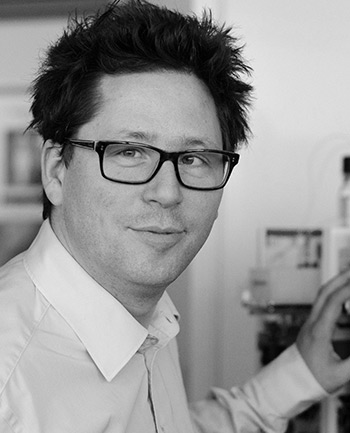 Oliver Poetz Oliver PoetzNatural and Medical Sciences Institute (NMI) at the University of Tübingen, Germany Lecture Title: Drug-Drug Interaction – Analyses of CYP450 Enzymes and Transporters in Mice and Men Dr. Oliver Poetz (Germany, 1974) has been working with the Natural and Medical Sciences Institute at the University of Tuebingen since 2002. Since 2010 he heads the department of protein analytics. |
Metabolomics & Metabolic Disorders
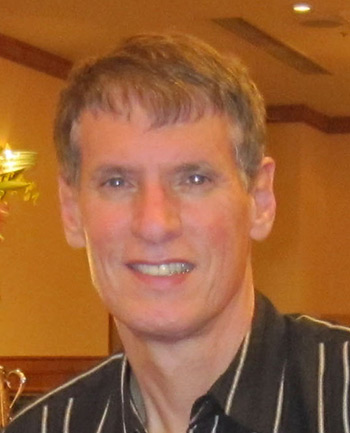 Frank J. Gonzalez Frank J. GonzalezCenter for Cancer Research, USA Lecture Title: Frank Gonzalez is Chief, Laboratory of Metabolism, Center for Cancer Research, National Cancer Institute, National Institutes of Health, Bethesda, Maryland USA. He received a Ph.D. in Oncology from the University of Wisconsin, Madison and did postdoctoral studies at the National Institute of Child Health and Human Development, National Institutes of Health before joining the National Cancer Institute. His group studies drug and carcinogen metabolism, and mechanisms of chemical carcinogenesis, primarily using mouse models. They employ LC/MS-based metabolomics to discover biomarkers for early cancer diagnosis and for the monitoring of cancer therapy and recurrence. The Laboratory of Metabolism also studies metabolic diseases such as obesity, insulin resistance and fatty liver disease, all of which are risk factors for cancer, and increase mortality in cancer patients. Recent studies have uncovered a novel pathway by which the gut microbiota influence obesity, insulin resistance and NAFLD, that has led to novel insights into potential clinical intervention into these disorders. |
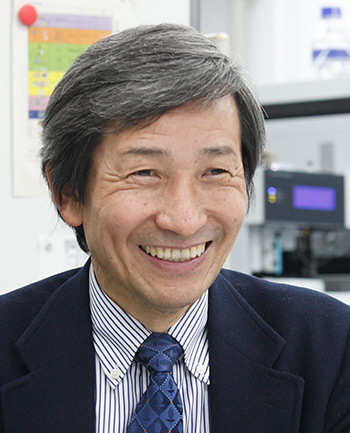 Tsutomu Masujima Tsutomu MasujimaRIKEN, Japan Lecture Title: Single Cell Metabolomics and Applications Tsutomu Masujima, Ph.D. is now the Team Leader of Single-cell Mass Spectrometry Laboratory in Quantitative Biology Center of RIKEN and also the Professor Emeritus of Hiroshima University where he was graduated, and worked finally as the professor of Analytical Chemistry Lab. in Pharmaceutical Sciences from 1989-2014. He innovated original and unique single cell analysis method called “Live Single-cell Mass Spectrometry” in 2007 in which the cell contents are sucked by a glass needle of nano-spray tip under the observation of the cell with a video-microscope and the contents are directly fed to the mass spectrometry within a few minutes after addition of ionization solvent from rear end of the tip. |
Neurological Disorders & Brain Proteomics
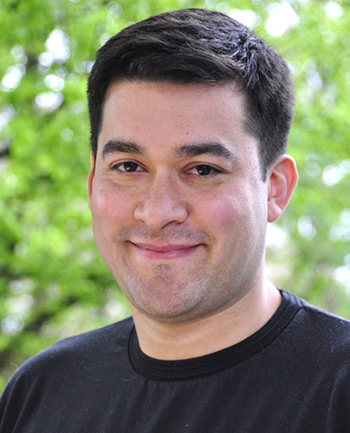 Daniel Martins-de-Souza Daniel Martins-de-SouzaUniversity of Campinas, Brazil Lecture Title: Employing neuroproteomics to understand the molecular basis of schizophrenia After having spent 6 years in postdoctoral training in Germany (Max Planck Institute of Psychiatry and Ludwig Maximilians University of Munich) and in the UK (University of Cambridge), Dr. Martins-de-Souza has become in 2014 Assistent Professor and Head of Proteomics in the Dept of Biochemistry of the University of Campinas (UNICAMP), in Brazil. There he started the Laboratory of Neuroproteomics (LNP), funded by FAPESP's Young Investigator program (http://www.bv.fapesp.br/3850). The LNP aims to unravel the molecular mechanisms and biomarkers candidates associated to psychiatric disorders using state-of-the-art proteomic techniques. |
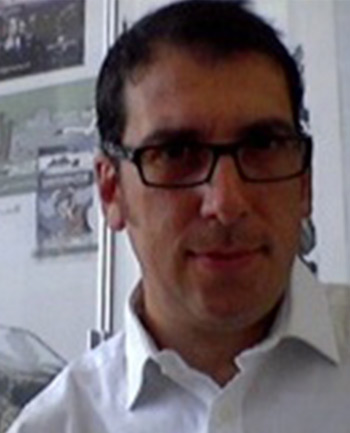 Andrea Urbani Andrea UrbaniUniversity of Rome “Tor Vergata, Italy Lecture Title: Exploring the role of hydrogen sulfide in neurodegenerative disorders Prof. Andrea Urbani started his research experience in 1990 within the Protein Biochemistry group of Prof. Federici (Tor Vergata University, Rome). During the PhD training (1994-1998) he has been working in the Merck, Sharp and Dohme laboratories of Pomezia (IRBM P. Angelini, Rome) on the functional and structural characterisation of the NS3 serine protease from the Hepatitis C Virus. This activity has led to the filing and extension of two patents application by MSD. Upon gaining the PhD title he moved to Heidelberg (Germany) at the European Molecular Biology Laboratory (EMBL) in the Structural Biology Programme (1998-2001) where he has pursued structural and functional investigation on integral membrane protein complexes. Following this experience I moved as a visiting scientist at the German Cancer Research Centre (Deutsches Krebsforschungszentrum) in the Analitycal Protein Chemistry unit where he has dedicated most of the investigations in the proteomics area. In his scientific experience he has been involved in protein characterisation by a number of different techniques. Mass spectrometry characterisation and identification of proteins represent the light motif of the laboratory he has developed during the last ten years. |
New Technological Advancements
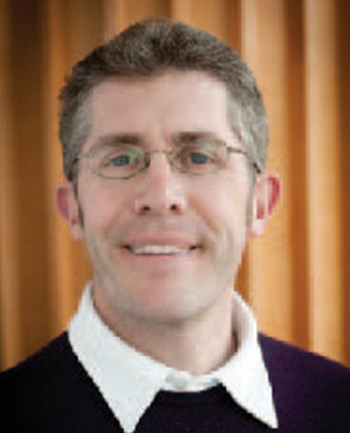 Neil L. Kelleher Neil L. KelleherNorthwestern University, USA Lecture Title: Proteomics 2.0: Recent Advances in Top Down Proteomics Dr. Kelleher’s laboratory has three main sub-groups working in the areas of Top Down Proteomics, Natural Products Biosynthesis/Discovery, and Cancer Epigenetics. The Kelleher group has been successful in driving both technology development and applications of high performance mass spectrometry at the interface of chemistry and biology. Since 2011, Dr. Kelleher has served as the director of the Proteomics Center of Excellence at Northwestern University, where >100 laboratories are supported and beyond state-of-the-art in Top Down proteomics is developed. Dr. Kelleher was elected Treasurer of the American Society for Mass Spectrometry in 2012 and co-founded the Consortium for Top Down Proteomics that same year (); the Consortium hosts a database of known proteoforms visible here: http://repository.topdownproteomics.org/ . In September 2012, Dr. Kelleher gave a keynote address at World HUPO (Boston), where he described a “Top Down” version of the Human Proteome Project viewable at this URL (http://www.kelleher.northwestern.edu/human-proteome-project/the-talk). With more than 300 papers published over the course of his career and teaching duties in two departments, Dr. Kelleher is a trans-disciplinary investigator with visible streaks of international impact in mass spectrometry-based proteomics and the discovery of new natural products from the microbial world. Validation of protein-based biomarkers in organ transplantation and cancers of the blood are among the focused areas currently being pursued in clinical research at Northwestern in Chicago, USA. |
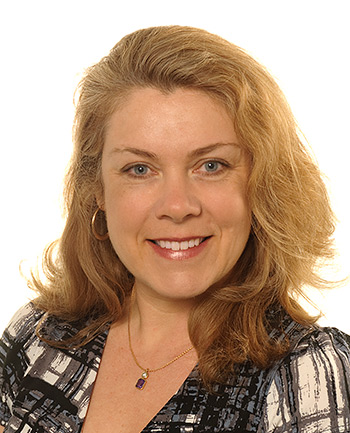 Kathryn Lilley Kathryn LilleyUniversity of Cambridge, United Kingdom Lecture Title: Capturing the dynamic spatial proteome Kathryn S. Lilley – Research Group Head and Director, Cambridge Centre for Proteomics, Department of Biochemistry, University of Cambridge, UK. |
Pharmacoproteomics & Drug Discovery
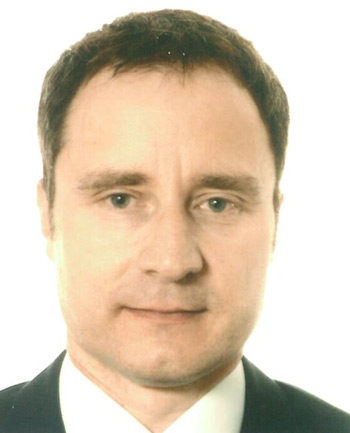 Henrik Daub Henrik DaubEvotec (München) GmbH, Germany Lecture Title: Quantitative Proteomics to Support the Discovery and Development of Targeted Drugs Henrik Daub received his PhD from the Max Planck Institute for Biochemistry in Martinsried near Munich, for the discovery of fundamental signal transduction mechanisms in cell proliferation. After his postdoctoral studies in RhoGTPase signaling Henrik joined a Munich-based biotech company where he and his team pioneered the development of chemical proteomics methods. Subsequently, as a group leader at Max Planck Institute for Biochemistry, his research focus shifted towards quantitative phosphoproteomics and chemical biology applications. Henrik received his venia legendi for biochemistry from the Technical University of Munich. He was a founder of Kinaxo, a Max Planck spin-off company specializing on high-end proteomics services. Henrik joined Kinaxo as Chief Technology Officer in 2010, which was acquired by Evotec in the following year. He now serves as Senior Vice President Science & Technology at Evotec Munich, overseeing the development and application of proteomics technologies for drug and biomarker research. |
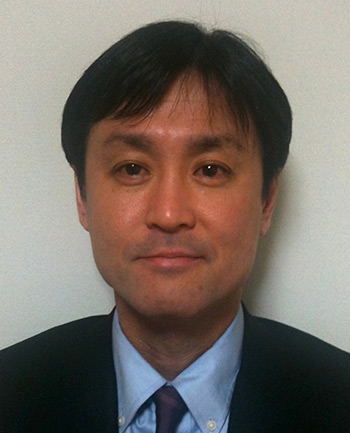 Yasushi Ishihama Yasushi IshihamaKyoto University, Japan Lecture Title: Kinase-centric pharmacoproteomics for molecular-targeting drug discovery Professor Yasushi Ishihama has been working in the field of proteomics since 2001. He has made a significant contribution to this field especially by developing the basic technologies such as nanoLC-ESI columns, StageTip mini SPE columns (>1050 citations), label-free quantitation method named emPAI (>1240 citations), HAMMOC phosphopeptide enrichment, MS-compatible surfactants and so on. In addition, these tools/approaches have been immediately applied to biology such as a first Malaria proteome study (Nature 2002), a first plant tyrosine phosphoproteome study (Mol Syst Biol 2008), a first large-scale study on phosphorylation stoichiometry in human cells (Nat Commun 2015) and a comprehensive study on bacterial phosphoproteomics (Sci Sig 2015). Recently his group established so-called ‘one-shot’ proteomics by ultrahigh resolution monolithic silica columns to uncover proteome on a microarray scale, which will open the next generation proteomics. He is also interested in comprehensive analysis of kinase-mediated cellular phosphorylation network using experimental and computational approaches. |
Plant & Microbial Proteomics
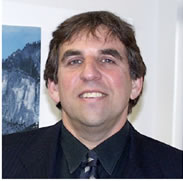 Michael R. Sussman Michael R. SussmanUniversity of Wisconsin-Madison, USA Lecture Title: Application of mass spectrometric technology for quantifying changes in plasma membrane receptor-mediated signaling in Arabidopsis thaliana. Professor Sussman is recognized as a leading expert in biological and genomic research. His research interests have focused on using the model higher plant, Arabidopsis thaliana, for understanding the role of plasma membrane proteins in signal transduction and solute transport. To help decipher the in situ role played by these proteins, his laboratory pioneered the development of genome-‐wide reverse genetics techniques to isolate‘knockout’ plants (1). For example, his lab was the first to demonstrate that the plant homologue for a brain potassium channel is performing a nutritional role in higher plants (2). More recently he has helped develop mass spectrometric approaches for identifying key proteins involved in signaling, including a receptor kinase that regulates cell elongation (3). In addition to these biological studies, his laboratory develops and utilizes new genomic technologies, including the invention of the maskless DNA array synthesizer, which was commercialized by a company he founded, NimbleGen Systems, Inc. His current interests continue to focus on plasma membrane function and genomics, and includes the recent assembly and analysis of the genome sequence for the strong voltage South American electric eel, Electrophorus electricus. The goal of this was to determine the molecular underpinning by which nature has created a cell with a plasma membrane that can generate enough electric power to kill its prey and enemies (4). Sussman's research has been funded by NSF, NIH, DOE and USDA and he has served on many federal advisory panels and editorial boards. His research has been recognized by many awards and honors, including election as a fellow in the American Association for the Advancement of Science and at UW-‐Madison, with a chaired professorship provided by funds from the Alumni Class of 1933. |
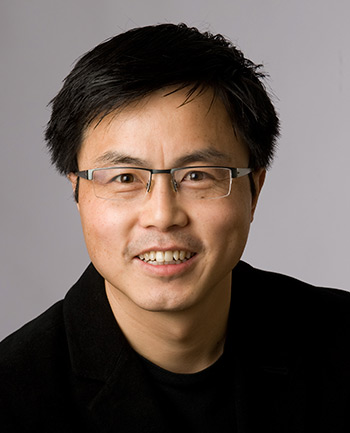 Weiguo Andy Tao Weiguo Andy TaoPurdue University, USA Lecture Title: Using proteomic tools to reveal new facets of plant signaling W. Andy Tao received his mass spectrometry training through his dissertation work on gas-phase chiral analysis in the Aston Lab at Purdue University, headed by Dr. R. Graham Cooks. After receiving his Ph.D. in December 2001, he worked for three years as a Damon Runyon Postdoctoral Fellow in the Institute for Systems Biology at Seattle, under the supervision of Drs. Leroy Hood and Ruedi Aebersold. He started his own research group in the Department of Biochemistry at Purdue University in 2005, and currently is Full Professor in ranking. He also has courtesy appointments in the Department of Chemistry, Department of Medicinal Chemistry & Molecular Pharmacology, and Purdue Center for Cancer Research. Tao leads an active research group focusing on new developments in mass spectrometry-based proteomics. In particular, the Tao group has introduced multi-functionalized soluble nanopolymers as a platform for the study of molecular signaling and for the identification of intracellular drug targets. Current applications include the identification of direct kinase substrates and multiplex assay of protein phosphorylation in cancer cells and plants. Tao has co-authored over 100 research articles, invited reviews, and book chapters. He received NSF Career Award in 2007 and was the recipient for the 2006 ASMS research award. |
Protein Standards & Model Organisms: Expanding our horizons
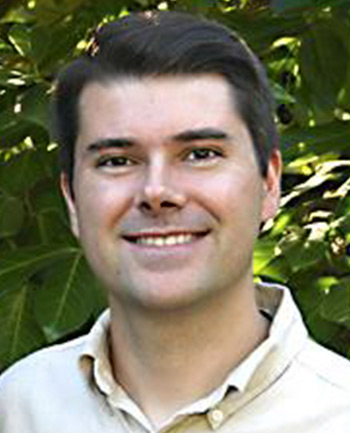 Eric Deutsch Eric DeutschInstitute for Systems Biology, USA Lecture Title: Enabling Data Sharing and Reuse: Recent progress and new projects for the HUPO Proteomics Standards Initiative Dr. Eric Deutsch is a senior research scientist at the Institute for Systems Biology, specializing in bioinformatics and integration of data for systems biology research, with a focus on proteomics. He is the lead designer for the Systems Biology Experiment Analysis Management System (SBEAMS). He contributes to the development of minimum information standards and data formats as chair of the HUPO Proteomics Standards Initiative. Dr. Deutsch is the head of the PeptideAtlas Project, which aims to collect proteomic mass spectrometry data from labs around the world to synthesize a master list of observed peptides and proteins and disseminate the results back to the community. He also leads the team that develops the Trans-Proteomic Pipeline (TPP), the mostly widely used free and open source suite of tools for the complete analysis of shotgun proteomics data. |
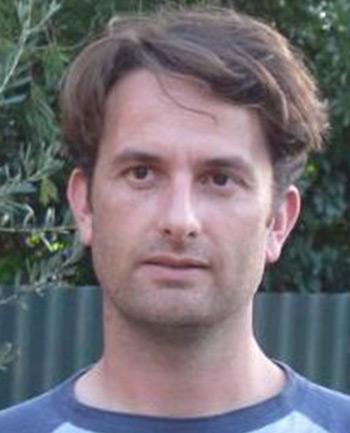 Joshua Lucas Heazlewood Joshua Lucas HeazlewoodThe University of Melbourne, Australia Lecture Title: The Golgi Localized UDP-GlcNAc transporter is required for the Maturation of Complex N-glycans in Plants A/Prof Heazlewood received his PhD from the Botany Department at La Trobe University in 2001. He then took a postdoctoral position at the University of Western Australia examining mitochondrial function in plants using proteomic techniques. In 2005 he received an Australian Postdoctoral Fellowship to extend his research around the characterization of plant mitochondria and respiratory chain complexes. He spent 2007 at the Max Planck Institute of Molecular Plant Physiology (MPIMP) in Potsdam-Golm (Germany) as an Alexander von Humboldt Research Fellow using advanced mass spectrometry techniques to examine protein phosphorylation. Towards the end of 2007, he was invited to create a research team at the newly funded US Department of Energy, Joint BioEnergy Institute (JBEI) in Berkeley, California (USA). While at JBEI (2008 to 2014) he led the Plant Systems Biology research group which developed a program focused on the utilization of proteomics, imaging and bioinformatics on aspects of plant cell wall biosynthesis. In 2013, he was awarded an Australian Future Fellowship within the School of BioSciences at The University of Melbourne. The research objectives of the Future Fellowship are to relocate technologies and approaches developed at JBEI, principally focussing on plant cell wall biosynthesis. This includes endomembrane separation technologies, computational approaches to investigate post translational modifications, a systems analysis of nucleotide sugar metabolism and the characterization of plant nucleotide sugar transporters. |
Proteogenomics & The Missing Proteins/peptides
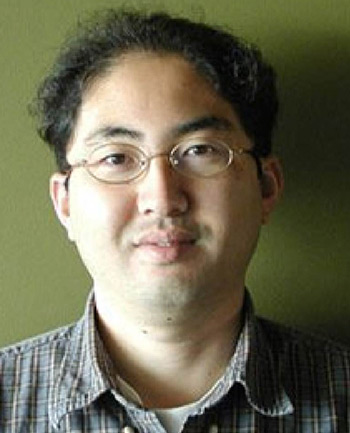 Daehee Hwang Daehee HwangDaegu Gyeongbuk Institute for Science and Technology, Korea Lecture Title: A proteogenomic analysis of early onset gastric cancer During Ph.D. study at MIT, he developed bioinformatic tools for integrative analyses of gene expression and metabolomic data. In 2003, he started his postdoctoral career at ISB and developed a data integration tool, Pointillist; proteomic data analysis tools, MS-BID and Prequips; a systems approach to prion disease; and a prion disease database. In 2006, he joined POSTECH in Korea and had developed systems approaches for understanding complex human diseases and proteomic approaches for identifying protein tissue/serum biomarkers for complex human diseases. In 2010, he became the director of System Biodynamics-National Core Research Center (NCRC). He developed tools for understanding spatiotemporal operations of biological networks. In 2013, he moved to DGIST in Korea and have been working on proteogenomic analyses of early onset gastric cancers and lung adenocarcinoma and network analysis of complex biological systems. |
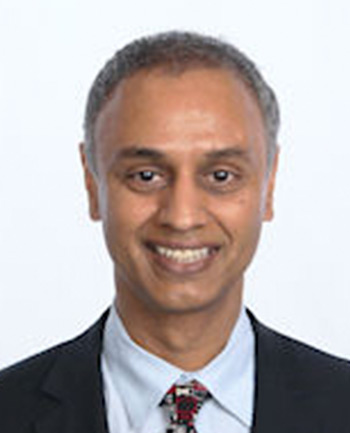 Akhilesh Pandey Akhilesh PandeyJohns Hopkins Medicine, USA Lecture Title: |
Proteome Dynamics: Turnover & Degradomics
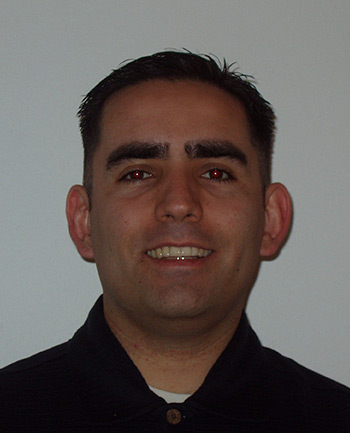 Donald S. Kirkpatrick Donald S. KirkpatrickGenentech, USA Lecture Title: Ubiquitin Proteomics – Revelations of a master manipulator Dr. Donald S. Kirkpatrick is a Senior Scientist and group leader in Discovery Proteomics at Genentech. His team functions as part of the Protein Sciences Division where they utilize mass spectrometry to characterize cellular proteins and post-translational modifications. His group has a long standing interest in protein ubiquitination, and how dysfunction within this system contributes to the development of human disease. The work in his lab seeks to define and validate new therapeutic targets that lead to treatments for cancer and neurodegeneration. |
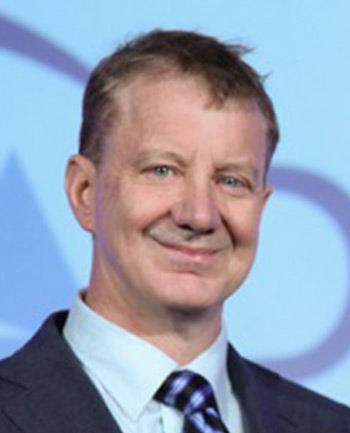 Christopher Overall Christopher OverallUniversity of British Columbia, Canada Lecture Title: Positional Proteomics Technologies to Functionally Annotate Tissue Proteomes in Pathology Dr. Overall is a Professor and Tier 1 Canada Research Chair in Protease Proteomics and Systems Biology at the University of British Columbia, Centre for Blood Research. He completed his Honors Science and Masters at the University of Adelaide, South Australia; his Ph.D. at the University of Toronto; and MRC Centennial Fellow with Dr. Michael Smith, Nobel Laureate, UBC. He was a Visiting Senior Scientist at British Biotech Pharmaceuticals, Oxford (1997/1998) and Visiting Senior Scientist Novartis, Basel (2004/2008), External Senior Fellow, Freiburg Institute for Advanced Studies, and in 2014 was appointed as Honorary Professor, Albert-Ludwigs Universität Freiburg. Awarded the 2002 CIHR Scientist of the Year, the UBC Killam Senior Researcher Award 2005, and was the Chair of the 2003 Matrix Metalloproteinase and the 2010 Protease Gordon Research Conferences. Elected to HUPO Council and as Co-Chair of the Chromosome–Centric Human Proteome Project (C-HPP) in 2014. With over 15,571 citations for his 229 papers (since 2000 cited >11,454 times, 12 >300 citations), h index of 65 he is a highly influential scientist. Professor Overall is also the pioneer of degradomics, a term he coined. With 21 Nature Review, Nature Journal, Cell Journal, Science and Science Signaling papers he was recognized by the International Society of Proteolysis (2011 Lifetime Achievement Award); by the Matrix Biology Society of Australia and New Zealand (2012 Barry Preston Award); by the IADR Distinguished Scientist Award for Research in Oral Biology (2013); and in 2014 by the Tony Pawson Canadian National Proteomics Network Award for Outstanding Contribution and Leadership to the Canadian Proteomics Community. He is an Associate Editor of the Journal of Proteome Research, Editor of mSystems. |
Proteomics in the Era of Big Data
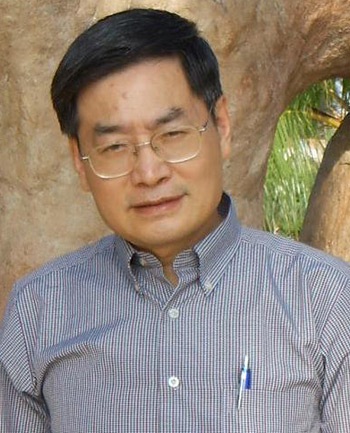 Pengyuan Yang Pengyuan YangFudan University, China Lecture Title: Precision analysis of proteome by HPLC-ESI-MS Dr. PengyuanYang, a Fudan-Schollarship Professor, gained Ph D from the University of Massachusetts at Amherst. He currently is the Deputy Director of Institutes of BioMedical Sciences, Fudan University. |
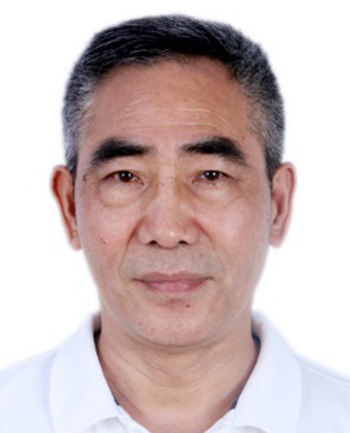 Weimin Zhu Weimin ZhuNational Institute for Protein Sciences – Beijing, China Lecture Title: Big Data infrastructure for Chinese Human Proteome Project Prof. Weimin Zhu was originally trained as a biomedical engineer in his undergraduate years. He pursuit more in-depth trainings in both molecular biology and data informatics in the next few years after he moved to Canada in 1989. His trainings in both disciplines made him naturally moving his career into bioinformatics in 1997 by taking a position at GDB (Genome Database), when bioinformatics was emerging as an exciting new scientific discipline. In the last 24 years, through various job posts in Canada, UK and China, his career has led me to become a data scientist specialized in large-scale data infrastructure for data management, analysis, integration, search and visualization. |
PTM Crosstalks I - Phosphoproteomics, Kinome & OGlcNAc
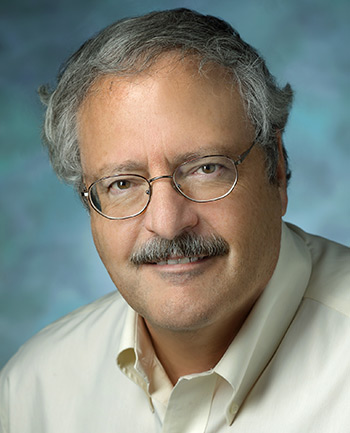 Gerald W. Hart Gerald W. HartJohns Hopkins University, School of Medicine, USA Lecture Title: Nutrient Regulation of Cellular Physiology by Extensive Crosstalk Between O-GlcNAcylation & Phosphorylation Gerald Warren Hart, Ph.D. is the DeLamar Professor and Director of Biological Chemistry at Johns Hopkins. He is an Associate Editor of J. Biological Chemistry and of Molecular and Cellular Proteomics and an Editor of BBRC. He founded the journal Glycobiology. Hart’s lab. discovered O-GlcNAcylation, he co-led elucidation of GPI anchor biosynthesis, and his lab documented the importance of protein structure for N-glycosylation. His lab discovered the extensive crosstalk between O-GlcNAc and phosphorylation, which regulates transcription and signaling and underlies the etiology of diabetes, neurodegenerative disease, cardiovascular disease and cancer. ~295 publications; Google H-factor = 102; i10-index=264. |
 Martin Røssel Larsen Martin Røssel LarsenProtein Research Group – University of Southern Denmark, Denmark Lecture Title: Modulation of multiple PTMs upon brief cellular stimulation |
PTM Crosstalks II - Lysine & other Modificomics
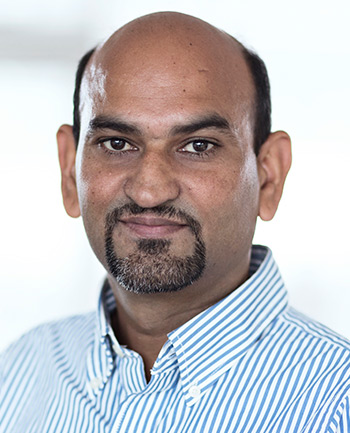 Chuna Choudhary Chuna ChoudharyUniversity of Copenhagen, Denmark Lecture Title: Systems-wide analysis of properties and functions of lysine acetylation and ubiquitylation Dr. Chuna Choudhary is currently a professor and group leader at the Novo Nordisk Foundation Center for Protein Research at the University of Copenhagen in Denmark. He carried out his doctoral studies at the University of Münster in Germany and his postdoctoral training at the same university as well as at the Max Planck Institute for Biochemistry in Munich, Germany. His laboratory is interested in studying posttranslational modification-based cell signaling networks using quantitative mass spectrometry-based approaches. His group uses quantitative mass spectrometry-based proteomics to investigate the dynamics of lysine acetylation and ubiquitylation in cellular signaling networks. By combining quantitative proteomics with cell and molecular biology approaches the group studies the properties and functions of these modifications. Dr. Choudhary has widely published in high-ranked journals and received several honors and awards, including the EMBO Young Investigator award, the Danish Cancer Society Junior Researcher award, and the ERC Consolidator grant. |
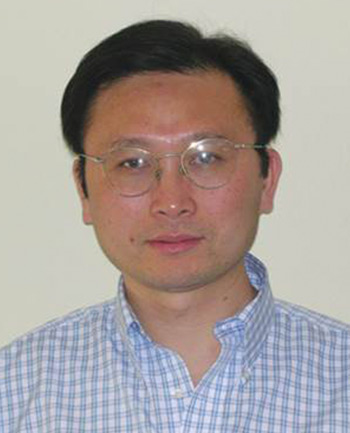 Yingming Zhao Yingming ZhaoThe University of Chicago, USA Lecture Title: Discovery and initial characterization of a family of lysine acylation pathways Yingming Zhao received his Ph.D. degree from the Rockefeller University under Professor Brian Chait in 1997. He is currently a Professor in the Ben May Department for Cancer Research at the University of Chicago. His main research interests lie in developing and applying MS-based proteomics technologies to discovery of protein post-translational modification (PTM) pathways. He also use an integrated approach, involving proteomics, biochemistry, molecular biology, and cell biology to decode PTM networks that have implications for human health and are not amenable to conventional techniques. His lab recently discovered eight types of new lysine acylation pathways: propionylation, butyrylation, crotonylation, malonylation, succinylation, glutarylation, and 2-hydroxyisobutyrylation, and 3-hydroxybutyrylation. They identified about 350 new histone marks, which more than doubles the number of previously described histone marks that were discovered over the past few decades. They revealed numerous specific binders and enzymes for the new PTM pathways. Specifically, his lab is the first who demonstrates acetylation-independent functions of deacetylases, including Sirt5 as a desuccinylase and deglutarylase. His laboratory demonstrates that the new PTM pathways have critical roles in epigenetic regulation and cellular metabolism. And these pathways contribute to physiology changes and cellular dysfunctions associated with diverse inborn metabolic diseases, therefore offering new avenues for therapeutic intervention. He is a co-inventor of numerous patents and co-authored 145 peer reviewed papers. |
Spatial & Single Cell Proteomics
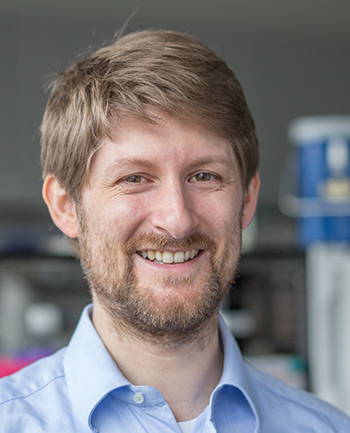 Bernd Bodenmiller Bernd BodenmillerUniversity of Zurich, Switzerland Lecture Title: Analysis Of Tumor Heterogeneity in Three Dimensions by Imaging Mass Cytometry Bernd Bodenmiller Institute of Molecular Life Sciences, University of Zurich, Switzerland. Bernd Bodenmiller (1979) studied biochemistry at the University of Bayreuth and ETH Zürich and obtained his PhD for his work on sγstem-wide signaling network analysis in the laboratorγ of Ruedi Aebersold at ETH Zürich. For his postdoctoral training, he joined the laboratory of Garry P. Nolan at Sta nford University. There he developed methods for the high throughput analysis of signaling network states by mass cytometry, a technology that allows quantifying up to 100 proteins and signaling molecules at the single celllevel. In 2012, he became group leader and in 2013 SNFjER C assistant professor at the Institute of Molecular Life Sciences at the University of Zürich. Currently his group is developing methods for highly multiplexed imaging by mass cytometry to unravel how trans-cellular signaling network interactions in the tumor microenvironment drive cancer development and ultimatelγmight be exploited for therapeutic targeting. |
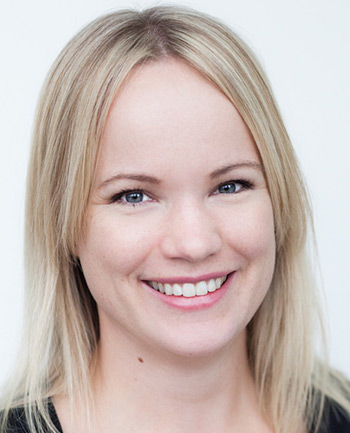 Emma Lundberg Emma LundbergScience for Life Laboratory, Sweden Lecture Title: The Human Cell Atlas Emma Lundberg is an Associate Professor of Cell Biology Proteomics at the Royal Institute of Technology in Stockholm, Sweden. The Lundberg lab is located to the Science for Life Laboratory, a newly started national research center for high-throughput molecular bioscience. In the interface between bioimaging and proteomics, her research aims to define the spatiotemporal organization of the human proteome at a subcellular level, and understand how variations and deviations in localization can contribute to cellular function as well as disease. Since 2010 Dr. Lundberg is Director of the Subcellular Atlas, part of the effort of systematically mapping the human proteome using antibodies and the creation of the Human Protein Atlas database (www.proteinatlas.org). For this effort her lab has developed technology platforms for large-scale immunostaining and systematic validation of antibody specificity, as well as initiated citizen science efforts to refine the information in the Human Protein Atlas database. Dr. Lundberg is a member of the Executive Committee of the Human Proteome Organization and the international Human Proteome Project. She received her Ph. D. in Biotechnology in 2008 and holds a M. Sc. in Biotechnological Engineering, both from the Royal Institute of Technology. |

